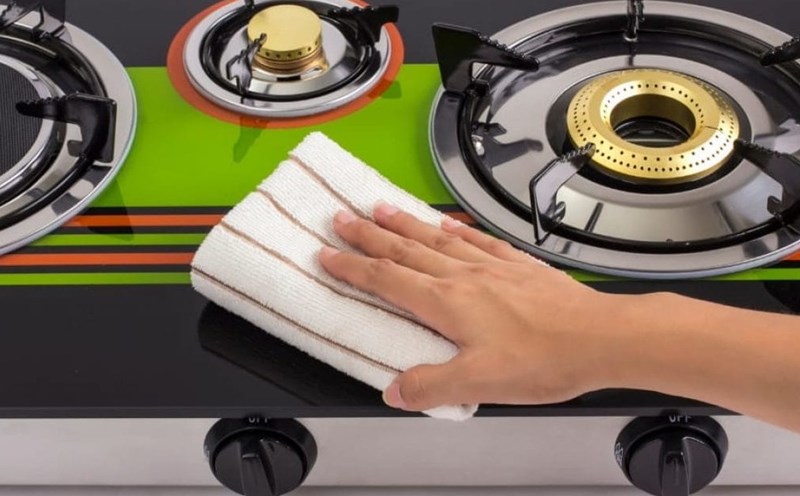Fat oil doesn't dissolve as you think
When exposed to hot water, the oil does not disappear completely but is diluted, causing it to stick back to the surface of the bowl, chopsticks or drainage pipe. This is especially common in water with a temperature not high enough to completely break down lipid structure.
Dr Sarah Green, a biochemist at the University of Sheffield (UK), said: "Many people think hot water is a solution to reduce fat. However, if not used with a suitable cleanser, the grease will only be dispersed and can stick to the surface of the tool or accumulate in the drainage system".
Drainage pipes are easily clogged
When oil meets hot water, it licks up and flows into the sewers. However, when the cooler goes into the pipes, the oil will freeze and stick to the pipes, gradually causing serious blockage. Many families do not pay attention to this until the drainage system is odor-prone or unusually slow to flow.
Harmful for wooden, plastic and non-stick items
Some items such as bamboo sticks, wooden spoons or non-stick pans are prone to deformation, cracking or peeling of the coating when exposed to hot water frequently. Washing with water that is too hot can also cause plastic aging, releasing microplastics or toxic chemicals into food for future use.
Hands disease if not wearing gloves
Washing with hot water without wearing gloves can cause dry skin, cracking, and even loss of the skin's natural protective oils. For people with sensitive skin or skin diseases, hot water can make the condition worse.
Safer solutions
- Use moderately warm water (35 - 45°C) combined with dishwashing water that effectively separates grease.
- Remove the excess oil from the paper before rinsing, helping to reduce pressure on the pipes and limit odor.
- Regularly clean your pipes with a mixture of salt, baking soda and vinegar to prevent long-term fat accumulation.
Washing dishes with hot water seems harmless, but if overused or used incorrectly can cause many risks to health, kitchen appliances and drainage systems. Use warm water reasonably and combine it with natural cleaning tips to protect both the family and the living environment.











